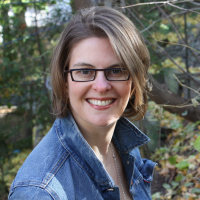In between composing High Holiday sermons and rehearsing the liturgy, 1300 Jewish clergy from all denominations have pressed their pens into the service of public policy this week, issuing a letter to the U.S. Congress requesting immediate action on immigration reform. The letter states, “From Abraham’s journey to Canaan, to our Exodus from Egypt, to today, we are a people that has over millennia continuously been expelled, been rejected, been freed, and been welcomed.”Among the specific policies the letter recommends are that the 11 million undocumented immigrants in the U.S. be “brought out of the shadows” and be provided reasonable pathways to citizenship, that family reunification be enabled, that border security measures be developed to accord with “American humanitarian values,” and that “safe, welcoming and humane avenues for refugees and asylum seekers” be created.
“During this Jewish High Holy Day period, we assess individually and as a community our strengths and shortcomings and commit ourselves to doing better in the future. It is in this spirit that we write urging Congress to address the shortcomings of the past and strive to do better in swiftly passing comprehensive immigration reform....”

As religions are, sadly, all too often used in the service of division, it is heartening when one religious group takes it upon itself to work for the betterment of society at large, especially to focus on the most vulnerable. With Abraham Joshua Heschel having famously spoken of praying with his feet as he marched at Selma, Jews have been at the forefront of American struggles for civil rights, women’s rights, and LGBTQ equality.
President Obama is clearly keenly aware of this, which is perhaps why he asked the 1,000 rabbis who annually share a closed phone call with him to assist him in advancing immigration reform legislation this year, one rabbi told me.
It is all the richer when the impetus for social justice is drawn from Jewish tradition and spirituality, where the texts can at times appear to be brittle, promoting antiquated values.
Like many social justice issues, immigration reform may appear to be motivated by charity, but it has a feedback loop that promises a better society overall.
As Rabbi David Saperstein, director of the Religious Action Center of Reform Judaism and one of the organizers of the letter initiative told me, “Long before the modern State of Israel came into being, America was the goldene medina [the golden land], [seen] as a refuge of safety and hope and fulfillment. We never know when we will need those kinds of humane policies for our people. But as a community, we recognize we will never be safe, never secure until we’ve created a society that has no place for discrimination, persecution, deprivation of categories of people based on who they are.”
Accordingly, the letter states, “Our domestic security is undermined when people live in fear of cooperating with law enforcement, and our economy suffers when we do not safely and legally acknowledge and employ millions of our country’s workers.”
Clearly, the well-being of one group has important spillover effects on others. In this broken-around-the-edges world, our fates are interconnected. It’s an important message to impart the very week that Jews worldwide annually gather amongst themselves, worshipping, celebrating and reflecting. As we wish for a sweet new year, listen to the call of the shofar, and pray that we will be inscribed in the Book of Life, it is all the sweeter to be reminded that our spiritual havens are not so sealed off that we cannot reach out to the Other.






